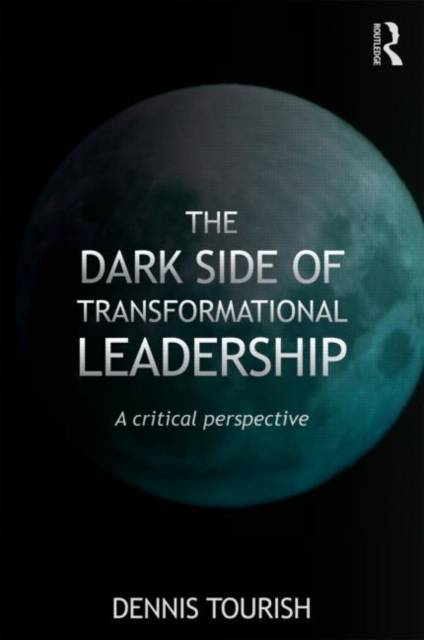
- Afhalen na 1 uur in een winkel met voorraad
- Gratis thuislevering in België vanaf € 30
- Ruim aanbod met 7 miljoen producten
- Afhalen na 1 uur in een winkel met voorraad
- Gratis thuislevering in België vanaf € 30
- Ruim aanbod met 7 miljoen producten
The Dark Side of Transformational Leadership
A Critical Perspective
Dennis TourishOmschrijving
Most research into leadership has presented leaders as heroic, charismatic and transformational 'visionaries'. The leader, whether in business, politics or any other field, is the most important factor in determining whether organizations succeed or fail. Indeed, despite the fundamental mistakes which have, arguably, directly led to global economic recession, it is often still taken for granted that transformational leadership is a good thing, and that leaders should have much more power than followers to decide what needs to be done.
The Dark Side of Transformational Leadership confronts this orthodoxy by illustrating how such approaches can encourage narcissism, megalomania and poor decision-making on the part of leaders, at great expense to those organizations they are there to serve. Written in a lively and engaging style, the book uses a number of case studies to illustrate the perils of transformational leadership, from the Jonestown tragedy in 1978 when over 900 people were either murdered or committed suicide at the urging of their leader, to an analysis of how banking executives tried to explain away their role in the 2008 financial crisis
This provocative and hugely important book offers a rare critical perspective in the field of leadership studies. Concluding with a new approach that offers an alternative to the dominant transformational model, The Dark Side of Transformational Leadership will be an invaluable text for academics interested in leadership, students on leadership courses requiring a more critical perspective, and anyone concerned with how people lead people, and the lessons we can learn.
Specificaties
Betrokkenen
- Auteur(s):
- Uitgeverij:
Inhoud
- Aantal bladzijden:
- 264
- Taal:
- Engels
Eigenschappen
- Productcode (EAN):
- 9780415564281
- Verschijningsdatum:
- 4/03/2013
- Uitvoering:
- Paperback
- Formaat:
- Trade paperback (VS)
- Afmetingen:
- 156 mm x 234 mm
- Gewicht:
- 371 g

Alleen bij Standaard Boekhandel
Beoordelingen
We publiceren alleen reviews die voldoen aan de voorwaarden voor reviews. Bekijk onze voorwaarden voor reviews.











